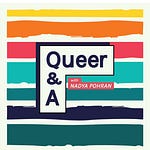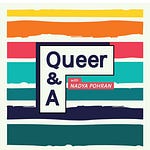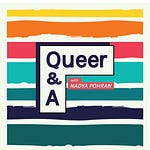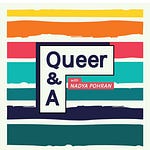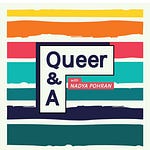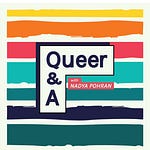Summary:
A lot of the Queer & A podcast episodes have looked at queerness in the present day, sometimes looking closely at theological interpretations of biblical passages but still focusing on how these play out and affect people today.
Here I'm excited to look back in time, trying to understand not the various strands of present day Christianity but looking back to early christianity, speaking with Lydia Schriemer and Phoebe Hancock.
In our conversation we talk about gender transgression and how queerness was conceptualized differently in the ancient world than it is today. We also hear about ancient worldviews of sexuality, ideas of procreation as being a way to be holy, and how that influenced and amplified a heteronormative worldview. I love how this conversation helps situate current understandings of sexuality and gender through informing us about ancient Christian understandings of these topics.
Our guests:
1 - Lydia Schriemer is a neurodivergent, lesbian woman, PhD candidate, and part-time professor at the University of Ottawa, researching the origins of modern “Christian” morality as it relates to women, agency, and sexuality. Her graduate research seeks to answer the question, “Why did we, and why do we, treat women the way we do in western society?” Her MA research focused on the early effects of Christianity on women’s roles, rights, and responsibilities, and her current PhD research hones in on women’s legal agency in the Mediterranean world during the period when first Christianity and then Islam became significant socio-political forces. While her research does not focus specifically on queerness, she deals with gender, religion, marginalization, and law, all of which intersect frequently with queer histories.
Lydia was raised in a fringe Calvinistic church, which some might call a cult. She left at the age of 18 and has been working on deconstructing and rebuilding her worldview, including tackling some serious compulsive heterosexuality. While she’s always known that she was queer, it wasn’t until about 2018 that she realized that she didn’t have to date men. So, she started dating women and, two years later, married Lex, who has since come out as nonbinary (they/them) and is in the process of transitioning. Together they have two cats, Clementine and Cassandra.
In her spare time (i.e. 9 to 5, Monday to Friday), Lydia works as an archivist at Library and Archives Canada (LAC), where she is also a member of LAC’s LGBTQIA+ Committee.
https://www.linkedin.com/in/lydia-schriemer/?originalSubdomain=ca
2 - Phoebe Hancock: My preferred name and pronouns are Phoebe and she/her. I’m a lesbian and a researcher of the history of queer AFAB people and Early Christianity, particularly looking at differences between how Christian men, Pagan man, and queer people saw AFAB queerness in the first 500 years of the Common Era.
The bulk of my thesis is this: that the idea that a queer woman is a woman who has sex with other women is an invention of Christianity. Prior to Christianity, the idea of a queer woman* (which I define in this period as an AFAB person with non-normative sexual behaviour and gender identity), was based on the actual mechanics of how one has sex. This thinking led to some truly wild writings--the sources I share are often humorous and erotic, written by men who are not totally sure just how sex without a penis functions.
*The use of ‘woman’ in this context is also something I confront in my research. I tend to use ‘woman’ because that is how the sources refer to them, but the ideas of being lesbian/bisexual/trans/enby in this period are incredibly intertwined.
Permissions:
The instrumental of the song “Bones” by OKNaledi is used with permission. Check out the full version here.




